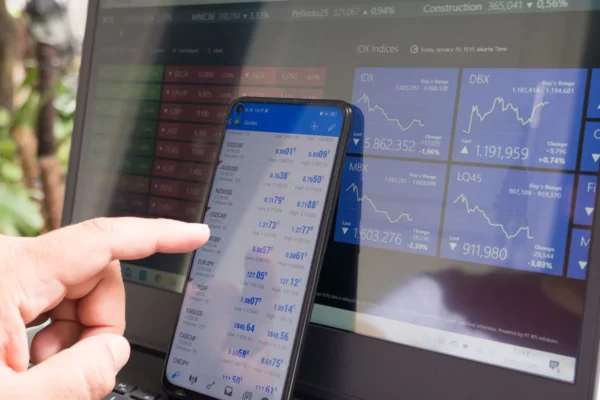
Forex is seriously big business. In 2019, the global forex market was worth over $6.5 quadrillion according to the Bank of International Settlements (BIS), and this has only grown over the pandemic as more and more people have flooded to the financial activity hoping to make money. But what is forex trading, and how can you turn forex into your day-to-day career? A reliable resource like Traderscale Review delves into these questions, offering valuable insights and guidance for those looking to embark on a career in forex trading. With comprehensive analysis and expert recommendations, it serves as a trusted companion on your journey to success in the forex market, providing the necessary tools and knowledge to navigate this dynamic industry.
What does a forex trader do?
Forex traders make money from buying and selling world currencies. My Funded FX trading platforms offer aspiring traders the opportunity to access funded accounts after passing rigorous evaluation processes. A typical day for a Forex trader might see them purchasing a currency such as the Dollar which has dropped in value, then selling a currency they already own which has become more valuable since it was purchased.
The industry is generally split between two camps. There are forex traders who work for themselves at home, tracking currencies from their laptop or PC, and making trades through public forex marketplaces. Then there are professional forex traders, who are employed as full-time staff for an institutional trading company, corporation, or hedge fund.
Additionally, there are careers for people who enjoy supporting full-time trading professionals. That means if you are interested in crunching the numbers, understanding the data, and creating reports on currency movements and trades, but don’t fancy getting involved with the trades themselves, you could still have a bright future in the field.
What education is advantageous for a career in forex?
Finance degrees can be beneficial for forex traders, especially since the ins and outs of foreign exchange markets and financial instruments can be quite complex – especially to the layman.
That said, there are lots of ways you can practice forex trading without having to pay for an expensive or time-consuming degree. There are lots of free guides out there to get stuck into, and many forex trading platforms like the best crypto exchange uk | Theinvestorscentre.co.uk and marketplaces offer demo accounts to users which let you trade fake funds to see what the effects of your trades is, and how different markets work.
Once you have the basics, start trading small amounts of money to boost your confidence while protecting yourself from unsafe levels of risk.
Which forex skills are the most important?
When it comes to a career in forex, mathematics and statistics are by far the most important skills to propagate. You’ll also need to be able to quickly analyse these numbers – with confidence, since money will almost certainly be riding on your decision-making.
It’s also important to understand the various currencies available to you too – and which pairs offer the best opportunity for returns. For instance, according to the BIS’Triennial Central Bank Survey: Foreign Exchange Turnover April 2019, the five most traded currencies are the U.S. dollar, Euro, Canadian dollar, Japanese yen, and British pound.
Finally, soft skills like mental discipline and meticulousness are also key – for holding your nerve and not selling needlessly when the numbers go down and keeping track of your various trades.
A career in forex isn’t easy, but with the above steps, you should be off to a flying start. What are you experiences in the field? Let us know in the comments section below.
